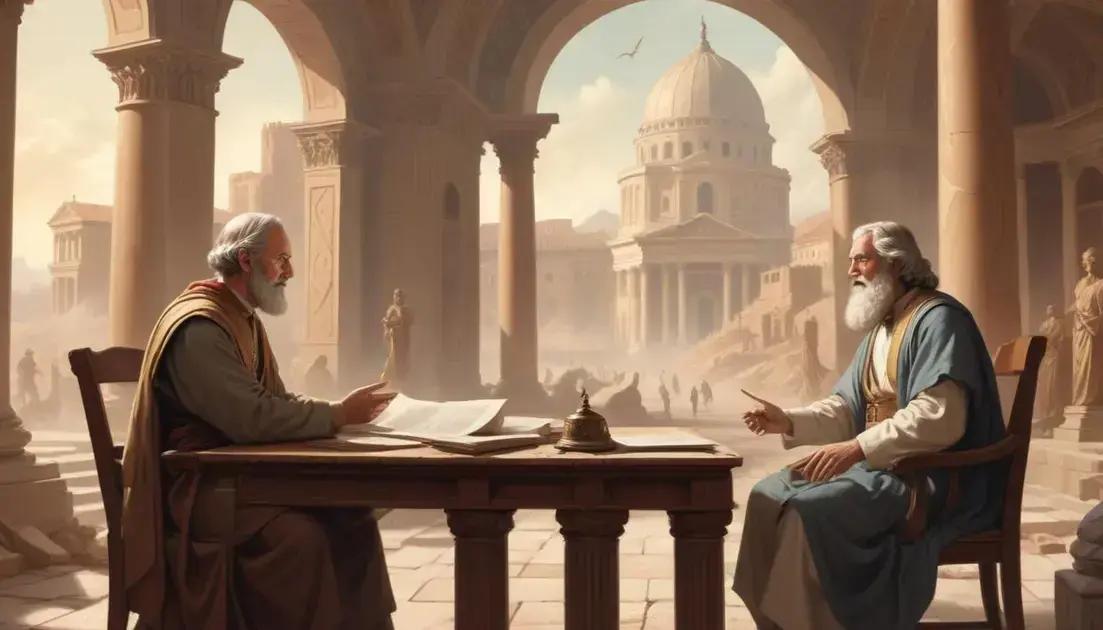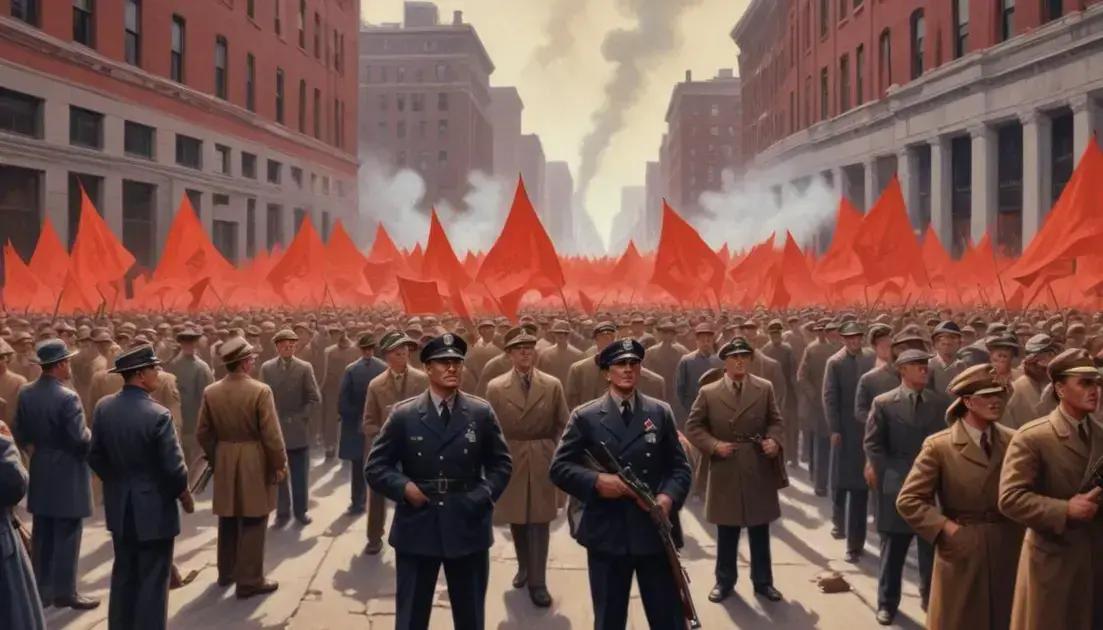
Fukuyama vs Huntington: debating civilization’s future
Fukuyama and Huntington present contrasting views on civilization’s future. Fukuyama emphasizes progress and the potential for global unity, suggesting that as societies evolve, they will adopt democratic values. In contrast, Huntington warns of cultural clashes, stressing that future conflicts may arise from deep-rooted cultural differences. Understanding both perspectives helps us navigate the complexities of today’s world, balancing the hope for cooperation with the awareness of potential conflicts between civilizations.
In a world increasingly defined by a clash of ideologies, the debate over **civilization** has never been more crucial. Join us as we dive into the contrasting views of Fukuyama and Huntington!
Introduction
The debate around civilization is not just about nations. It shapes our values and ideas. Each thinker, like Fukuyama, believes in progress and common ground. However, Huntington warns us of divides between cultures.
Understanding these views helps us see the world better. Fukuyama sees potential for harmony, while Huntington highlights the risks of conflict. Both perspectives give us important insights.
What can we learn from them? Their ideas can guide how we think about today’s issues. By discussing these theories, we can explore how they impact our lives.
Understanding Fukuyama’s View
Fukuyama believes in the idea of progress. He argues that we’ve moved toward a more democratic world. This means we can find common ground. Fukuyama says that history shows this trend. As societies grow, they become more open and accepting.
His view often relates to the concept of Westernization. He thinks that many parts of the world will adopt similar democratic values. This is hopeful since it encourages unity among diverse cultures.
Fukuyama also discusses the end of history. He believes that, in many ways, democracies represent the final form of government. This idea challenges people to think about future conflicts and solutions.
Understanding Fukuyama’s view helps us grasp the potential for change. If societies can learn from each other, we may achieve peace. Indeed, this thought challenges us to seek cooperation amidst our differences.
Exploring Huntington’s Perspective
Huntington offers a different view. He emphasizes clashes between cultures. In his opinion, conflicts arise from cultural and religious differences. This idea is quite powerful. It suggests that our backgrounds shape how we interact.
Huntington’s theory is known as the Clash of Civilizations. He believes the next major conflicts will not be between countries. Instead, they will occur between major cultural groups.
For him, understanding these cultures is key. He argues that civilizations have distinct values. These differences can lead to misunderstandings and tension.
By exploring Huntington’s thoughts, we see how politics and culture mix. His perspective challenges us to recognize these potential conflicts. Knowing this can help us navigate our global society more effectively.
The Implications of Both Theories
Both Fukuyama and Huntington offer valuable insights. Their theories affect how we see the world today. Fukuyama’s idea of progress pushes us to seek unity. This is essential for building peaceful societies. He inspires hope for a shared future among cultures.
On the other hand, Huntington’s view reminds us of potential risks. He highlights the dangers of cultural divides. Understanding these divides helps us prepare for conflicts. We need to be aware of how our differences can lead to tension.
The implications of both theories are significant. By exploring them, we learn to balance cooperation and conflict. This balance is key for global peace and understanding. Engaging in discussions about these ideas can help us navigate future challenges.
Conclusion
Exploring the ideas of Fukuyama and Huntington gives us important insights into our world. Their views shape how we understand cultures today. Fukuyama promotes progress and cooperation, while Huntington warns us of cultural conflicts. Both perspectives are valuable.
Recognizing these ideas can help us see possible futures. Balancing optimism with caution is essential. This approach allows us to address challenges and embrace opportunities. By connecting these theories, we can work towards a better understanding of global dynamics.
Conclusion
In summary, understanding Fukuyama and Huntington helps us navigate today’s complex world. Their differing views on civilization reveal important lessons. Fukuyama’s emphasis on progress inspires hope for unity. Meanwhile, Huntington’s focus on cultural divides reminds us of potential challenges.
By blending these ideas, we can prepare for conflicts while also seeking cooperation. This balanced approach is key for a brighter future. As we move forward, let’s embrace the insights from both thinkers. Together, we can work towards creating a more peaceful and interconnected world.


